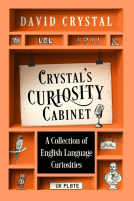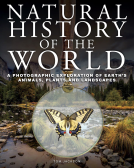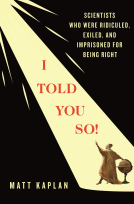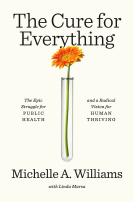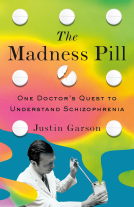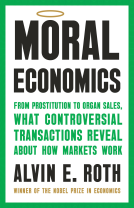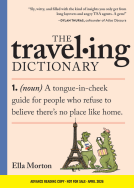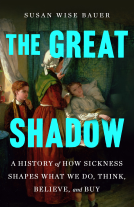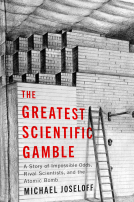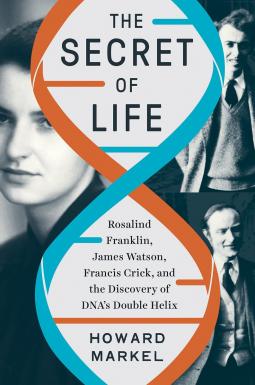
The Secret of Life
Rosalind Franklin, James Watson, Francis Crick, and the Discovery of DNA's Double Helix
by Howard Markel
This title was previously available on NetGalley and is now archived.
Send NetGalley books directly to your Kindle or Kindle app
1
To read on a Kindle or Kindle app, please add kindle@netgalley.com as an approved email address to receive files in your Amazon account. Click here for step-by-step instructions.
2
Also find your Kindle email address within your Amazon account, and enter it here.
Pub Date Sep 21 2021 | Archive Date Aug 31 2021
Talking about this book? Use #TheSecretofLife #NetGalley. More hashtag tips!
Description
An authoritative history of the race to unravel DNA’s structure, by one of our most prominent medical historians.
James Watson and Francis Crick’s 1953 discovery of the double helix structure of DNA is the foundation of virtually every advance in our modern understanding of genetics and molecular biology. But how did Watson and Crick do it—and why were they the ones who succeeded?
In truth, the discovery of DNA’s structure is the story of five towering minds in pursuit of the advancement of science, and for almost all of them, the prospect of fame and immortality: Watson, Crick, Rosalind Franklin, Maurice Wilkins, and Linus Pauling. Each was fascinating and brilliant, with strong personalities that often clashed. Howard Markel skillfully re-creates the intense intellectual journey, and fraught personal relationships, that ultimately led to a spectacular breakthrough. But it is Rosalind Franklin—fiercely determined, relentless, and an outsider at Cambridge and the University of London in the 1950s, as the lone Jewish woman among young male scientists—who becomes a focal point for Markel.
The Secret of Life is a story of genius and perseverance, but also a saga of cronyism, misogyny, anti-Semitism, and misconduct. Drawing on voluminous archival research, including interviews with James Watson and with Franklin’s sister, Jenifer Glynn, Markel provides a fascinating look at how science is done, how reputations are undone, and how history is written, and revised.
A vibrant evocation of Cambridge in the 1950s, Markel also provides colorful depictions of Watson and Crick—their competitiveness, idiosyncrasies, and youthful immaturity—and compelling portraits of Wilkins, Pauling, and most cogently, Rosalind Franklin. The Secret of Life is a lively and sweeping narrative of this landmark discovery, one that finally gives the woman at the center of this drama her due.
About the Author: Howard Markel, MD, PhD, is the George E. Wantz Distinguished Professor of the History of Medicine at the University of Michigan. He is the author of several award-winning books and is a frequent contributor to the PBS NewsHour, The New York Times, and The New Yorker. He is a Guggenheim Fellow and a member of the National Academy of Medicine.
Advance Praise
"A deft and deeply researched book, The Secret of Life definitively unravels the most profound scientific mystery of our time and the brilliant, complex, and often conflicting personalities competing to describe the looped architecture of existence. With this story behind the story of life, Howard Markel expertly guides us back to a place of wonder." - Charles Graeber, New York Times best-selling author of The Good Nurse and The Breakthrough: Immunotherapy and the Race to Cure Cancer
"The Secret of Life captures the heart-pounding excitement, the unique personalities, and the interplay of chance, inspiration, doggedness, and sound scientific method that allowed for the decoding of DNA. Markel’s skills as a trained historian, a physician, and an accomplished writer allow this watershed moment in science to come alive and to be a page turner. A marvelous book!" - Abraham Verghese, MD, professor of medicine, Stanford University School of Medicine, and author of Cutting for Stone
"Howard Markel’s brilliant book examining the discovery of DNA is a ‘must-read’ for biologists and historians. But this is also a book for every reader; it brings to life the discovery of life itself. From Watson, Crick, and Franklin to the dozens of characters that Markel includes, The Secret of Life covers vast and important ground…An indispensable work." - Siddhartha Mukherjee, Pulitzer Prize–winning author of The Emperor of All Maladies and The Gene
"The discovery of DNA is one of history’s light-switch moments, when the world of science—indeed, humanity—changed forever. Though much has been written on the subject, nothing remotely compares to Howard Markel’s magisterial account. Elegantly written, packed with fresh insights gleaned from a wealth of original sources, The Secret of Life takes us into the minds and laboratories of the leading players, highlighting their brilliance, their ambitions, and their sometimes questionable ethical behavior. This book is the merging of a seminal subject and superb author—one of the leading medical historians of our era. The result is truly remarkable." - David Oshinsky, professor of history and medicine, NYU, and Pulitzer Prize–winning author of Polio: An American Story
"Howard Markel’s wonderfully written book, The Secret of Life, explores the story of genetics up to the revolutionary mid-twentieth century decoding of the structure of DNA. And it does so in such brilliant detail that the result is—even for those who might think they know this story—a tale that proves fresh, provocative, startlingly insightful, and addictively fun to read." - Deborah Blum, Pulitzer Prize–winning author of The Poison Squad: One Chemist’s Single-Minded Crusade for Food Safety at the Turn of the Twentieth Century
Available Editions
| EDITION | Hardcover |
| ISBN | 9781324002239 |
| PRICE | $30.00 (USD) |
Average rating from 9 members
Featured Reviews
In spring of 1968 I was sitting in my high school biology class listening to Mr. Gasiorowski explain the miracle of life. He was excited, transported, his face illuminated. He reverentially talked about James Watson and the discovery of the double helix. Sometime afterward, I found Watson’s book The Double Helix: A Personal Account of the Discovery of the Structure of DNA on the shelf of the drug store I passed on my walk home from school and spent my meagre allowance to buy it.
My teacher knew that the discovery marked a watershed moment. But Watson’s book was part mythos and novelized for effect.
James Watson and Francis Crick were young and brilliant, two people in a race to discover the structure of the building blocks of what makes us what we are. Also in the race was “the world’s greatest living chemist,” Linus Pauling of the California Institute of Technology. Maurice Wilkens and Rosalind Franklin were at King’s College working “the old-fashioned, scientific way–with the slow work and steady accretion of data.” Pauling and Watson/Crick were on the wrong track; Pauling’s idea had a glaring flaw, and they were looking for a triple helix.
Watson solved the dilemma only after he saw a xray of DNA taken by Franklin, shared without her knowledge. And he never properly accredited her work as contributing to his discovery. Now, Howard Markel writes, it is time to tell how it really happened.
The Secret of Life is filled with big personalities, flawed and eccentric. Inevitably, these scientists clashed over theory and they clashed personally.
Rosalind Franklin was brilliant, dedicated to her work, committed to scientific facts, and “devastatingly blunt”. She worked in X-ray crystallography of DNA. As a Jewish female scientist she had everything stacked against her. She grated on Maurice Wilkins, “a bag of neuroses” who may have been in love with her and angry that she kept her distance.
Watson was impatient and clumsy; he didn’t do experiments but envisioned things in his head and then built a model. Crick was the mathematician with a “dazzling” grasp of biophysics. The two hit it off right away.
Wilkens and Franklin were doing the bedrock of scientific research.
Also in the race was the eccentric Pauling, who had helped create the Atom bomb and now wanted to contribute something monumentally positive to science.
Watson and Crick’s structure explains everything. Linus Pauling quoted in The Secret of Life
Markel follows the scientific advancement of understanding DNA, first with the history. Then, he follows the rivals in their research and their personal lives, showing all the steps in their understanding along the way. Watson and Crick won the acclaim for discovering the structure of DNA, forgetting to mention the x-ray that gave Watson the insight he needed.
Franklin’s early death from cancer was likely caused from the radiation she was exposed to in her work. Before her death, she became close to Crick and she and Watson forgot their differences.
Watson invited Wilkens to share in the prize, but not Franklin. “You don’t usually win the Nobel Prize for data you can’t interpret,” Watkins said to the author. But he also admitted his actions were not “exactly honorable.”
Markel’s book is at once high drama and an explanation of the science that lead up to Watson’s ah-ha moment. I grasped the idea of the chemistry without understanding chemistry (chemistry was not one of my finer achievements in high school). It was a challenging read for me, but my interest was caught by the wonderful portraits of these personalities.
I received a galley from the publisher through NetGalley. My review is fair and unbiased.
 Reviewer 725763
Reviewer 725763
"The Secret of Life is a story of genius and perseverance, but also a saga of cronyism, misogyny, anti-Semitism, and misconduct. Drawing on voluminous archival research, including interviews with James Watson and with Franklin’s sister, Jenifer Glynn, Markel provides a fascinating look at how science is done, how reputations are undone, and how history is written, and revised."
This quote from the publisher's description sums up the book nicely. It's more about personalities than about science, though science plays a huge role. As a woman, it was painful but unsurprising to read about how Franklin was abused and slandered by her male colleagues.
Above all, this book elevates Franklin to the place she deserves. Her X-ray work likely cost her her life, but revealed the structure of DNA that led to Watson and Crick's Nobel Prize winning breakthrough. Her name belongs beside theirs for the rest of time.
Thanks, NetGalley, for the ARC I received. This is my honest and voluntary review.
 Educator 868923
Educator 868923
This is the book I've been waiting for as a scientist. The discovery of the structure of DNA is something that's been repeated to me throughout each increment of my education. Occasionally Rosalind Franklin would be mentioned, albeit infrequently & briefly, and as I became older it began to be more of a bug-bear, the fact that the credit for the discovery went to two men, who in reality stole data & the credit from Rosalind herself.
Despite this, the book hinges more on the personalities of those involved & the intricacies and interactions between them.
I'd say this is a must read for anyone who wants to learn more about what happened between these scientists. Having said this, I do think some biology knowledge or a fond liking for wikipedia is necessary to get the most from this, as in some places the language can get quite technical, particularly where the x-ray crystallography is concerned.
Readers who liked this book also liked:
Alvin E. Roth
Business, Leadership, Finance, Health, Mind & Body, Politics & Current Affairs
Jennie Batchelor, Julia Quinn, Natalie Jenner, Charlie Lovett, Talulah Riley, Janet Todd et al
Essays & Collections, Novellas & Short Stories, Women's Fiction

